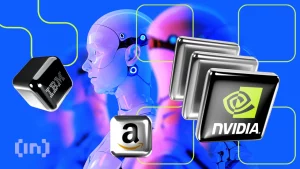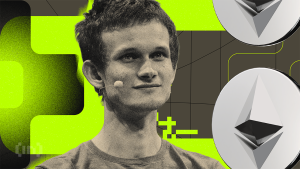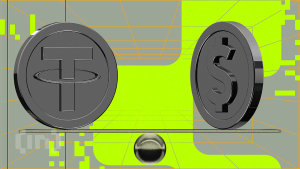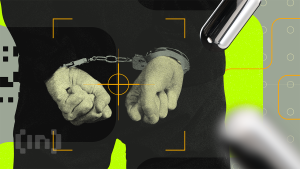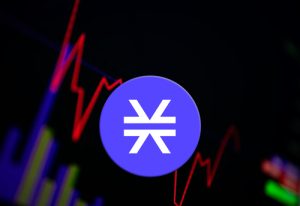Big Corporations Will No Longer Have Power Over Our Speech
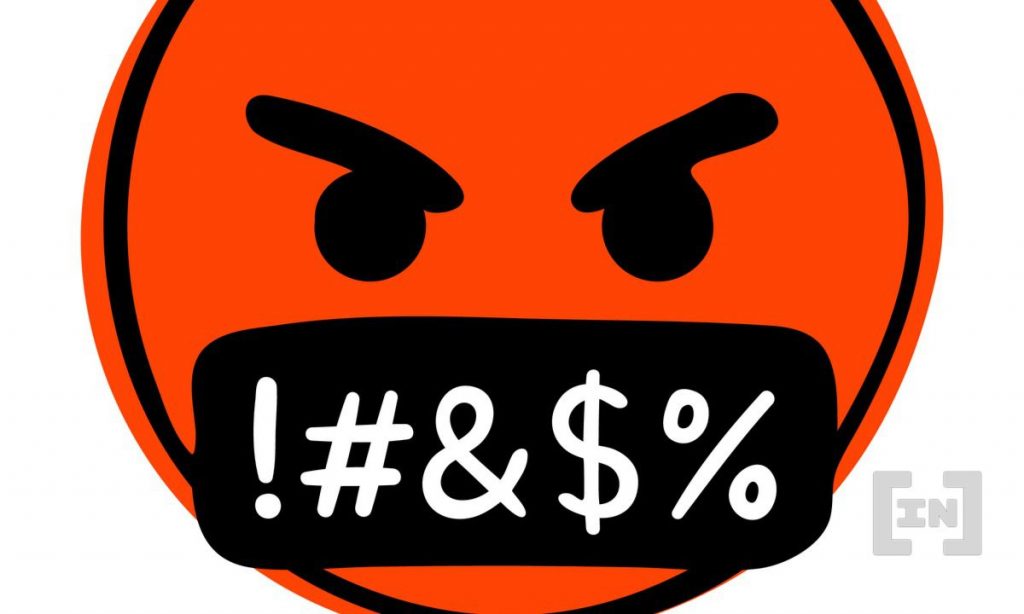
DAOs: Decentralized autonomous organizations are no longer fringe, says Josh Drake, the Chief Operating Officer of the DFINITY Foundation.
We should be paying attention to how DAOs are disrupting the traditional structure of governance. Several DAOs have already proved the concept. The DAO is arguably becoming one of the most important applications of blockchain technology to date.
DAOs and Web3
DAOs will be crucial for building a Web3 that can address all of the shortcomings of the current internet. They represent what amounts to the opposite of big tech, in which a handful of founders or investors hold centralized control over the entire user base and their content.
Here are the roles DAOs can play in heightening the Web3 experience.
DAOs represent a lot more than just decentralized technology, they’re decentralized business models becoming increasingly more powerful. Everything from infrastructure to governance and revenue is distributed, so DAOs are true, user-owned services for Web3 applications and more. They engender a more egalitarian approach to organizations and businesses, enabling the user base to fully control their online experience.
What’s more, any individual can simultaneously be a consumer, shareholder, and director on these decentralized platforms.
Take, for example, CanCan. It is a TikTok-like, decentralized social networking service run on Internet Computer – which will allow users to stream and share videos on their mobile device directly from the internet. What sets CanCan apart is that this is all handled 100% on-chain. This will provide a truly secure decentralized platform that incentivizes all users to produce, engage with, and moderate content, effectively making them members of the team that manages the dApp.
This is accomplished through the use of reward points which can be gifted to others and will eventually be tradeable for governance tokens upon the launch of the IC SNS. Although still in early-stage development, CanCan is an ambitious project with a lot of promise.
Rewards points can be earned through various forms of interaction on the platform, such as helping a video go viral or flagging content that is offensive or otherwise inappropriate for general audiences. What is important to note is that this system puts virtually all of the power in the hands of the people who actually use the service, in a way that cannot realistically be manipulated or wrested away.
Comparisons
Compare that to centralized services like TikTok, where users have very little control of their data. TikTok (and arguably the Chinese government) dictates and enforces the rules on its content, and the community has very little input. It’s not alone either; user-generated platforms like YouTube, Quora, and Facebook have ultimate control, and that leads to a lot of problems.
2. Fair Distribution of Value
On the subject of rewards tokens, DAOs are perfectly suited for seamlessly handling the distribution of resources. Because every part of how these organizations work is hardcoded into the canisters that run them, there is no “middle man” who can affect the fair compensation given to those who participate. Effectively, every user will be rewarded directly according to the nature of their service and the amount they get involved.
There will be no need for “performance reviews” – everything will just function automatically.
This means startups can now compete on a level playing field with incumbent services, attracting a user base via incentivization and driving network effects to extend their reach. Beyond just individual incentivization, DAO communities can also decide as a whole how their treasuries are allocated. Do they want to put their collateral towards a collective investment, a development fund, or a project incubator?
For too long, startups lacked the resources to scale, and DAOs can democratize the traditional VC fund to distribute the power of resource allocation. And because VCs typically provide both organizational structure and financial support, we also must discuss fundraising.
3. Decentralized Fundraising
Through a DAO, any Startup could secure funding in a decentralized manner, led by the community. Instead of offering IPOs or securing specific investors, DAO-led fundraising will enable anyone with an internet connection to get involved. It won’t matter who the user is or even how much capital they have. As long as they are interested in a new service or platform, they can easily invest in it, with virtually no barriers to entry.
This can help small companies with limited capital still grow and compete even without specific, large backers. It also keeps those teams autonomous, as sometimes a project will have to bend to the whims of whoever is paying them, lest they lose funding. Traditional VC funding stifles both productivity and creativity, but it doesn’t have to be this way anymore.
It is exactly this structure for both fundraising and distribution of assets that attracted so many projects to the Internet Computer so quickly. Take Distrikt, a full, complex social media platform that was built in just a matter of months. That would be pretty impressive even for a fairly simple Web2 startup, let alone for a social media platform that is completely blockchain native. However, the tools and resources afforded by DAOs run on Internet Computer actually streamline much of the process.
DAOs are so successful these days that even Kickstarter is developing one to bring its crowdfunding platform into the new generation. It resolves the fundamental flaws in crowdfunding models in which investors often get fleeced by failed projects while legitimate ones lose steam due to lack of funding.
4. Content Moderation
The next two considerations on our list are intrinsically tied, but we’ll begin with general content moderation. DAOs can be highly effective in properly curating the content on any platform, in a fair and even manner, all based around general consensus. Nobody wants their feed filled with offensive material, it creates a poor overall experience and drives decent users off the platform.
However, by allowing votes on either content policies, individual pieces of content, or both, DAOs can enforce the net will of the users to silence any bad actors. This can lead to a balance where the only voices being taken away would be ones that the majority of the community don’t want to hear.
This will be essential for the next generation of messaging services, like OpenChat. OpenChat is a truly decentralized messaging service that functions much like existing messaging apps such as WhatsApp and Signal. Because of the underlying structure, users get to have a say as to what types of speech and media are allowed, and in fact, these rules could change in real-time as cultural opinions shift.
And users will still have the same industrial-grade, end-to-end encryption for their private conversations.
OpenChat represents a much more balanced system than one where policies are decided in business meetings between a few dozen people and then “handed down” to the platform, with no choice for users but to accept or leave. Companies like Facebook and Twitter have repeatedly shown that they will interfere with what can be said on their services, with little account for the average user. In fact, this brings us to our final point:
5. DAOs and Combating Censorship
On the other side of moderation is preventing outright censorship, particularly the kind imposed by tech companies who may have different sensibilities from their users. Platforms like Facebook and Twitter famously censor certain content and people, many times for conduct that may not have even occurred on the platform. Cancel culture is a real problem in the U.S., and DAOs are a more viable solution than giving corporations power over our speech.
Again, that’s not to say every type of media or every opinion needs to be allowed, just that these choices should be made at the community level based around voting. The content that is deemed acceptable, then, cannot ever be censored by any other source.
To help ensure this guarantee, website developers can begin building on the Internet Computer via Fleek. Fleek is a frictionless hosting solution, like Netlify but for the open web. Its suite of tools enables developers to deploy websites to the IC in just a matter of minutes, including hosting static front ends for decentralized services.
This provides an accessible interface that minimizes the complexity of creating and updating content on these websites, with the powerful benefit of them being immune to being taken down from any business or political entity. The Internet Computer can become a very important tool for journalists, documentarians, or anybody who is living under an oppressive government as a means to public content that’s immutable.

DAOs and Building the Vision for Web3
As you can see, there are many important roles that DAOs will play as we build out the true vision for web3. The ability for any business or project to be community-led, community-funded and community-moderated is going to change how people look at the internet forever.
Of course, none of this would work without a platform that can not only act as its own “bedrock” DAO, but provide all the tools to maintain this level of decentralization and functionality at literally any scale. That’s exactly what Internet Computer is, and now, we’re at the beginning of the next stage of truly remote business, finance and entertainment.
About The Author

Josh Drake is the Chief Operating Officer of the DFINITY Foundation, responsible for incubating and launching the Internet Computer blockchain. Prior to joining DFINITY Josh worked at Coinbase, a digital currency wallet and platform. Past work experiences include Veritas Technologies, Maxim Integrated, Triple Canopy, Law Enforcement, and the United States Marine Corps.
Got something to say about DAOs or anything else? Write to us or join the discussion in our Telegram channel.
Disclaimer
All the information contained on our website is published in good faith and for general information purposes only. Any action the reader takes upon the information found on our website is strictly at their own risk.





